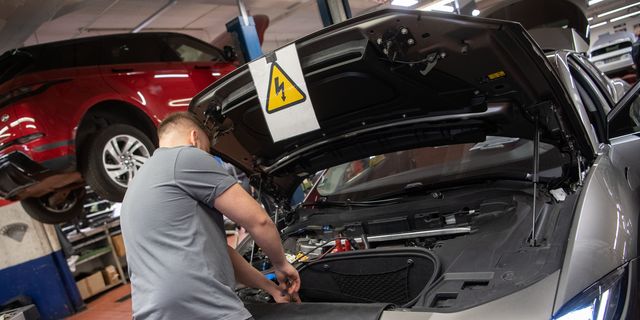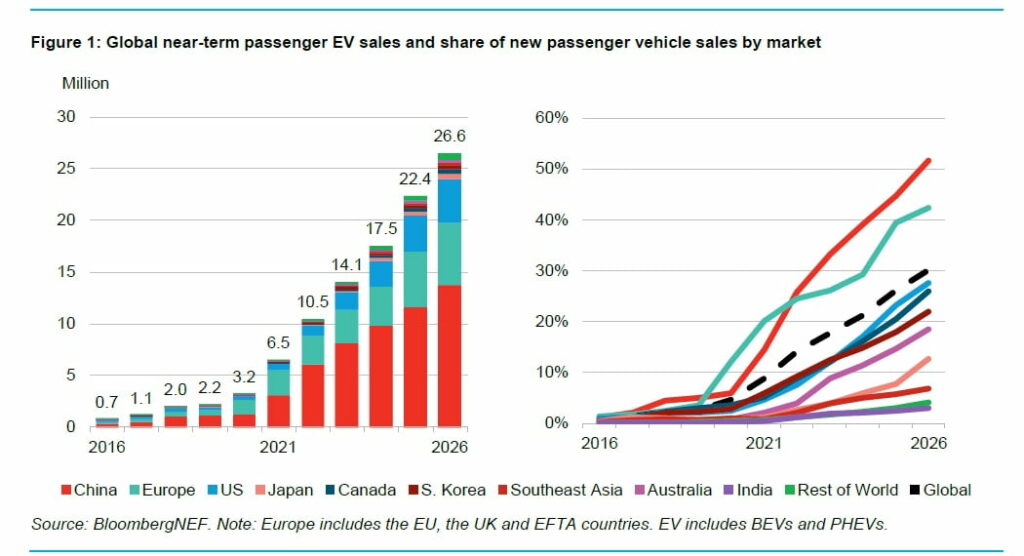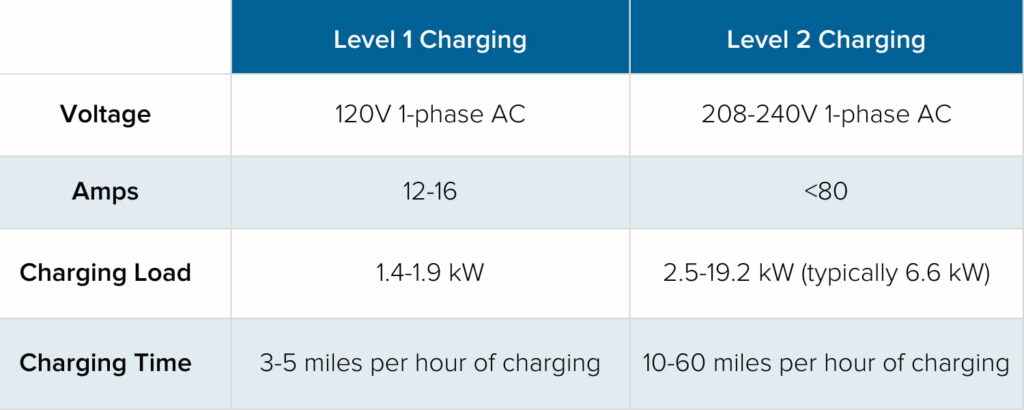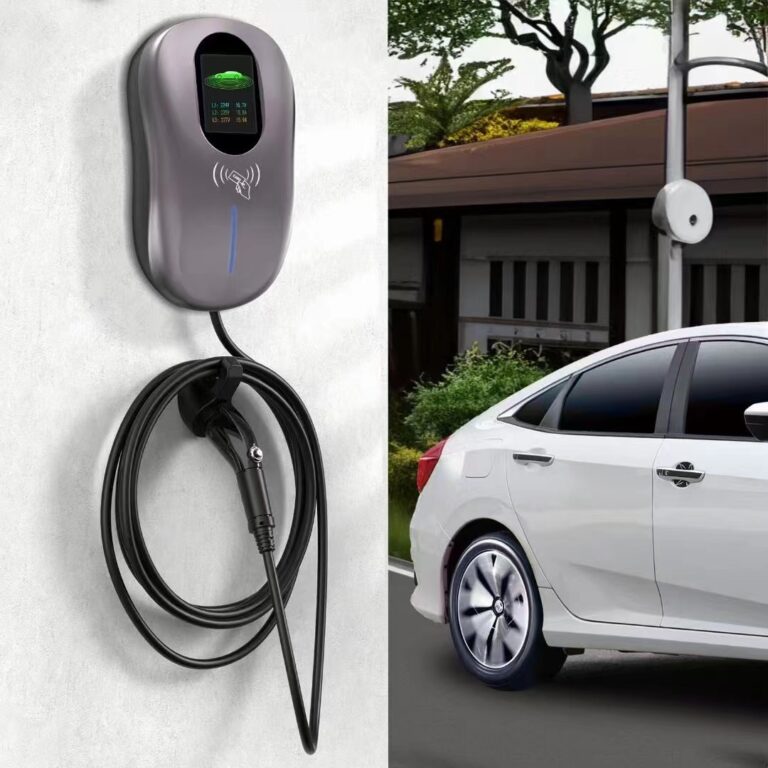Why Electric Cars are a Cost-Saving Solution
Electric cars have gained significant popularity in recent years due to their numerous cost-saving benefits. Not only do they offer a more environmentally friendly alternative to traditional gasoline-powered vehicles, but they also provide substantial savings in terms of fuel and maintenance costs.
One of the primary advantages of electric cars is their reduced fuel costs. Electricity is generally cheaper than gasoline, allowing drivers to save money on their daily commute or long-distance trips. With the increasing availability of public charging stations, it has become more convenient for electric vehicle (EV) owners to recharge their cars at a lower cost compared to constantly refueling with gasoline.
In addition to lower fuel expenses, electric cars also offer lower maintenance costs. Unlike internal combustion engines found in conventional vehicles, electric motors have fewer moving parts that can wear out or require regular maintenance. This means EV owners can say goodbye to oil changes, transmission repairs, and other costly maintenance procedures associated with traditional cars.
Moreover, the positive environmental impact of electric cars cannot be overlooked. By switching from gasoline-powered vehicles to EVs, individuals contribute significantly towards reducing greenhouse gas emissions and combating climate change. The use of electricity as a power source for transportation helps decrease reliance on fossil fuels and promotes cleaner energy alternatives.
Overall, electric cars provide an attractive cost-saving solution for car enthusiasts, environmentally conscious individuals, and potential EV buyers alike. With reduced fuel and maintenance costs coupled with their positive environmental impact, it’s no wonder that electric vehicles are becoming increasingly popular around the world. In the following sections, we will delve deeper into the specific advantages of EVs as well as explore current trends and challenges faced by this innovative form of transportation.
Advantages of Electric Vehicles
Electric vehicles (EVs) offer a range of advantages over traditional gasoline-powered cars. From reduced fuel costs to lower maintenance expenses, here are some key benefits that make electric cars an attractive option for car enthusiasts, environmentally conscious individuals, and potential EV buyers.
1. Reduced Fuel Costs

One of the most significant advantages of electric vehicles is their ability to save on fuel costs. Electricity is generally cheaper than gasoline, allowing EV owners to enjoy substantial savings at the pump. The cost per mile for electricity is typically lower compared to gasoline, resulting in long-term financial benefits for drivers.
Moreover, electric cars have higher energy efficiency compared to internal combustion engine (ICE) vehicles. While conventional cars waste a significant amount of energy through heat dissipation, electric motors convert a higher percentage of electrical energy into actual vehicle movement. This increased efficiency translates into fewer energy losses and ultimately helps reduce fuel consumption.
2. Lower Maintenance Costs

Another advantage of electric vehicles is their lower maintenance costs. Unlike ICE vehicles with complex engines and numerous moving parts, electric cars have simpler drivetrains that require less maintenance. With fewer components prone to wear and tear, EV owners can save money on repairs and replacements.
For instance, there’s no need for oil changes in electric cars since they don’t rely on internal combustion engines that require lubrication. Additionally, transmission maintenance is not necessary in EVs since they use direct-drive systems or single-speed transmissions that are more reliable and require minimal upkeep.
By eliminating these routine maintenance tasks associated with traditional vehicles, electric car owners can save both time and money in the long run.
In summary, the advantages of electric vehicles include reduced fuel costs due to cheaper electricity prices and higher energy efficiency. Additionally, lower maintenance costs stemming from fewer moving parts and the absence of oil changes or transmission maintenance contribute to the overall cost-saving benefits of owning an EV. In the next section, we will explore the current trends in electric vehicles, including advancements in battery technology and the growing charging infrastructure.
Current Trends in Electric Vehicles

As electric vehicles continue to gain popularity, there are several current trends that are shaping the future of this innovative form of transportation. From increased driving range to improved charging infrastructure, let’s explore these trends and their impact on the adoption of electric cars.
1. Increased Range
Advancements in battery technology have significantly increased the driving range of electric vehicles. In the early days of EVs, limited range was a common concern for potential buyers. However, with ongoing research and development, manufacturers have made substantial progress in extending the distance an electric car can travel on a single charge.
Modern electric cars now offer longer driving distances, making them more practical for daily commutes and long-distance trips. This increased range is made possible by improvements in battery chemistry and energy density. As a result, drivers can confidently rely on their electric vehicles without worrying about running out of charge during their journeys.
Furthermore, there is now a wider variety of EV models available with extended ranges. From compact city cars to SUVs and even luxury sedans, consumers have more options than ever before when it comes to choosing an electric vehicle that suits their needs.
2. Improved Charging Infrastructure
The growth of public charging stations has been instrumental in promoting the adoption of electric vehicles. Governments, businesses, and organizations around the world are investing in charging infrastructure to support the increasing number of EVs on the road.
Public charging networks are expanding rapidly, providing convenient access to charging points for EV owners. This network includes both standard AC chargers and faster DC fast chargers that allow for quicker recharging times.
DC fast charging is particularly noteworthy as it enables drivers to recharge their electric cars at a much faster rate compared to traditional AC chargers. With DC fast charging stations becoming more prevalent along highways and major routes, long-distance travel with electric vehicles is becoming increasingly feasible.
Additionally, advancements in technology have led to innovations such as smart charging solutions and mobile apps that help EV owners locate nearby charging stations and manage their charging sessions more efficiently.
Challenges Faced by Electric Vehicles
While electric vehicles offer numerous advantages, there are still some challenges that need to be addressed for wider adoption. These challenges primarily revolve around the charging infrastructure and longer charging times compared to refueling a gasoline car.
1. Limited Charging Infrastructure
One of the main challenges faced by electric vehicles is the limited availability and uneven distribution of charging stations. While major cities and urban areas often have a relatively good network of charging points, rural areas and less populated regions may have fewer options. This can make long-distance travel more challenging for EV owners, as they may need to plan their routes carefully to ensure access to charging facilities.
Additionally, even in areas with a decent number of charging stations, there can be longer distances between each point. This can cause inconvenience and anxiety for drivers who rely on public charging infrastructure, especially when traveling to unfamiliar locations or areas with sparse coverage.
Efforts are being made to expand the charging network and improve accessibility across different regions. Governments, utility companies, and private businesses are investing in the installation of more charging stations to address this challenge and support the growing number of electric vehicles on the road.
2. Longer Charging Times

Compared to refueling a gasoline car, charging an electric vehicle takes longer. While it only takes a few minutes to fill up a gas tank, recharging an EV’s battery can take anywhere from several hours or more depending on the charger type and battery capacity.
This longer charging time can be inconvenient for drivers who are used to quick refueling stops during long journeys or those who do not have access to fast-charging stations. It requires careful planning and consideration of available charging options before embarking on longer trips.
Although fast-charging stations exist, their availability is still limited compared to standard chargers. Fast chargers provide a significant boost in recharging speed but require specialized infrastructure that is not yet as widespread as regular chargers.
As technology continues to advance, efforts are being made to develop faster-charging solutions that can reduce overall recharge times significantly. Continued investment in research and development will help overcome this challenge and make electric vehicle ownership even more convenient in the future.
The Pros and Cons of Electric Cars
In conclusion, electric cars offer numerous cost-saving benefits that make them an attractive option for car enthusiasts, environmentally conscious individuals, and potential EV buyers. By switching to electric vehicles, drivers can enjoy reduced fuel costs due to the generally cheaper price of electricity compared to gasoline. Additionally, electric cars have higher energy efficiency, allowing them to go further on a single charge.
Lower maintenance costs are another advantage of electric vehicles. With fewer moving parts and no need for oil changes or transmission maintenance, EV owners can save both time and money on routine upkeep.
Current trends in the electric vehicle industry include increased driving ranges and improved charging infrastructure. Advancements in battery technology have enabled longer distances to be covered on a single charge, making electric cars more practical for everyday use. Furthermore, the growing network of public charging stations and faster charging options like DC fast charging are making it easier for EV owners to recharge their vehicles conveniently.
However, challenges still exist in the form of limited charging infrastructure and longer charging times compared to refueling a gasoline car. Efforts are being made to address these challenges by expanding the charging network and developing faster-charging solutions.
Overall, electric cars provide a promising solution for cost savings while benefiting the environment through reduced emissions. As technology continues to advance and infrastructure improves, we can expect even more advantages from electric vehicles in the future.








